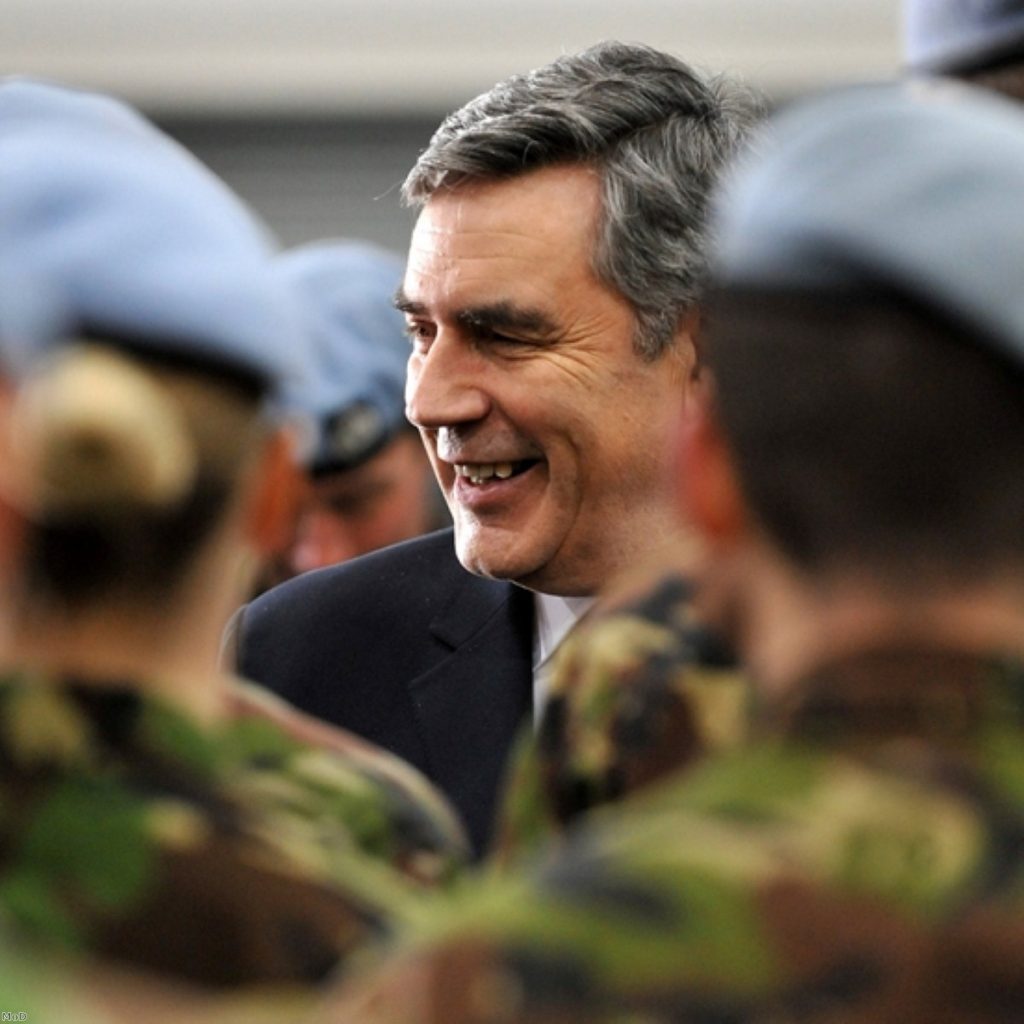Analysis: Brown survives Chilcot
This was not, let’s face it, the organ grinder. But it wasn’t the monkey either.
By Ian Dunt
Public interest in today’s appearance by Gordon Brown at the Iraq inquiry was far less substantial than that given to Tony Blair when he appeared earlier this year. For a start, Blair was actually the man who made the decision. Secondly, he had been away a while, and we were curious.
With Brown, we know what to expect. He will answer the question he wishes you ask, not the one you actually did. He will use impossible varieties of numbers as defensive weapons. He will not be charismatic or engaging. All of these things are true. But there is an upside to Brown appearances at say, his monthly press conference, or events like today: you know exactly the conversation he had with his aides before coming. It’s just too obvious, because he repeats one phrase over and over again. Today it was that he had approved every single request made for Iraq equipment and funding.


Complaints had been made that he had persisted in the use of Snatch Land Rovers a popular vehicle in Northern Ireland which was unsuitable for Iraq due to its vulnerability to roadside bombs. “When a request for vehicles was made, the expenditure was allocated and the vehicles were provided,” Brown said today. As soon as a request was made he replaced the Snatch with Mastiff and Bulldog vehicles.
Some has complained that the Treasury had not allocated money for defence projects. Wrong, Brown insisted. “In 2002 I told the prime minister that there would be no financial constraints for the military options on offer,” he insisted. Every request for equipment met something he referred to as a “fundamental truth”.
And what of those defence officials who accused Brown of ‘guillotining’ the defence budget. Here it got complex. The simplified version, as Brown told it, was that the Ministry of Defence (MoD) thought it was working under a particularly accountancy formula. The rules changed and the MoD ended up with less money to spend than it thought it had. The Treasury stopped them spending it, because to allow one department to do so would have meant all could just jump right on in. In actual fact, the MoD got more money than that allocated to it in the strategic spending review.
Brown shot down the arguments against him one by one, all the while repeating his mantra: I didn’t turn down a single request. It was, when all is said and done, pretty convincing.
Politicians have media training, and they usually especially at Brown’s level have honed political instincts. They very rarely tell bare-faced lies. Instead, they meander their way around questions they don’t want to answer. They take the scenic route and somewhere along the way the destination changes. They answer a different question, or they phrase the sentence in a way that will minimise damage later down the line.
Brown was solid and straightforward today. He wasn’t lying. Today’s performance should bring an end to controversy over his funding during Iraq and Afghanistan.
There was something else to be commended as well. Brown showed solemnity in his wrapping up statement. “Lives are affected and sometimes lives are lost,” he said. This contrasted impressively with Blair, who barely seemed to remember the lives lost because of his decisions and spent most of his time demanding a war with Iran. Instead, Brown stressed the difficulty of the decisions, but remained committed to them nonetheless.
Fireworks it certainly was not. But the PM managed to get through it without handing any electoral grenades to his opponents and perhaps even neutralising on line of attack against him at the election. He’ll be pleased with the result.












